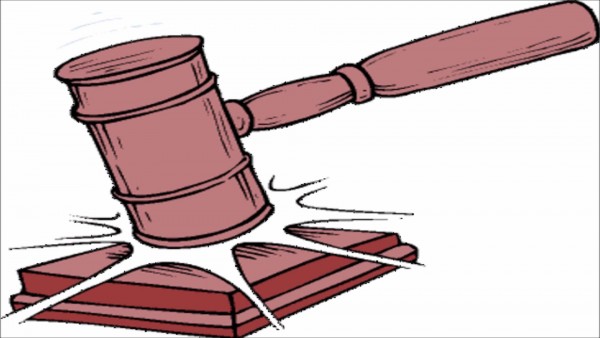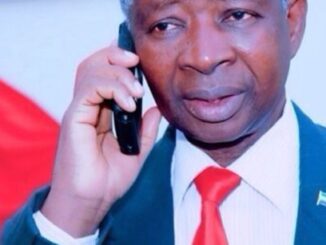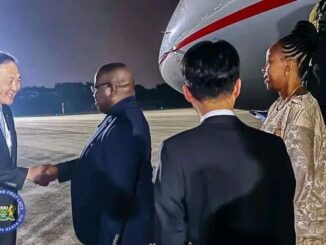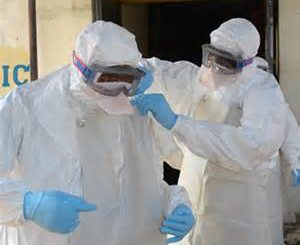
By KABS KANU :
When I listened to the MAMBA TV ‘s audio interview of people it claimed were approached on the streets ( Though there is no evidence by way of video streaming or pictures that the so-called interview was conducted through random sampling ) , I learnt once again that some of our people are wallowing in ignorance and only argue from an emotional, instead of conceptual and sound analytical perspective.
The Mamba TV “public interview ” was the very first time I have heard an interview where not a single respondent took the opposite view . In all interviews I have heard where participants were randomly chosen on the street, especially on a matter that split the nation , there was no possibility of everybody saying the same thing. Even in the Western world, when we listen to CNN, MSNBC, FOX, CBS, ABC, VOA, BBC, random public interviews never provide the same responses from everybody. AT LEAST ONE OR TWO RESPONDENTS USUALLY SUPPORT THE OTHER SIDE.Donald Trump, despite all the way he is loathed, always has at least one person talking on his behalf in random interviews.
With thousands of President Ernest Koroma and APC supporters all over the place, it is surprising that none of the people interviewed supported President Koroma. We are left to wonder if any of them was sampled and whether their views were not suppressed. With the kind of all-or-nothing propaganda being waged against the government, things do not surprise some of us any more.
The other surprise about the interview was that none of the residents had the conceptual ability to argue outside the box and consider whether the ECOWAS Court had the LOCUS STANDI and jurisdiction over the case and whether the sovereignty of a nation would not be breached if another court outside the country overruled the verdict of its Supreme Court. Let us not forget that the Sam Sumana case had already been decided by the Supreme Court of Sierra Leone, which we repeat, is the highest court and final arbiter of justice in the nation.
I think we should try to understand the protocols under which the ECOWAS Court was set up to determine whether Sam Sumana has a case. If participants in Sierra Leone’s media interviews, talk shows, online forums and the social media had the moral will to be rational in their thinking , this would have been an interesting and educative topic of argument. But Sierra Leoneans normally do not argue issues from an analytical and coherent perspective . They depend on insults, verbal abuse expatiation of their raw emotions and articulation of partisan beliefs during important arguments on forums and the social media. From my experience, I have learnt that many Sierra Leoneans depend more on noise, sarcasm and insults to enforce their arguments, claims and positions. They do not rely on substance.
So, let us try to answer the question here : Does the ECOWAS Court have the jurisdiction to reverse a Sovereign nation’s Supreme Court ruling on a constitutional matter ?
The answer is simply NO. The simple reason is that Articles 6 and 15 of the Revised Treaty of the Economic Community of West African States (ECOWAS ) and Article 10 of the Supplementary Protocol of the ECOWAS Court need to be domesticated by Sierra Leone, which, to my understanding, has not been done . Even assuming that the revised treaty has been domesticated, the Revised Treaty is inferior to the constitution and the Supreme Court.
Even if the ECOWAS Court rules in his favour, Chief Sam Sumana will benefit nothing from the verdict because it will not be enforceable in Sierra Leone where the court’s treaty and protocols have not been domesticated.
To the credit of the ECOWAS Community Court of Justice , it is now clear that what the Liberian Justice Minister said the other day that it has limited jurisdiction over member states of ECOWAS is wrong. The ECOWAS Court has the power to rule and enforce its verdicts on cases of the violation of the human rights of citizens of member states. What is however debatable is whether the Court has the power to regard verdicts of the Supreme Courts of member states as violation of human rights and whether the Court has the power to reverse the verdicts of Supreme Courts .
The ECOWAS court was established pursuant to the provisions of Articles 6 and 15 of the Revised Treaty of the Economic Community of West African States (ECOWAS), article 10 of the Supplementary Protocol of the ECOWAS Court adopted in January 2005 by the Authority of Heads of States and Government of which gave access to individuals, corporate bodies and non governmental organizations direct access to the court for the enforcement of human rights ( Ibehehe Effiong , Sahara Reporters , October 15, 2016 ).
The question of whether a constitutional matter of a sovereign nation that was settled by the Supreme Court—The highest court and the final arbiter of justice in the land — could be regarded as a violation of human rights under the provisions of the ECOWAS Court and international law was answered by the fact that there is no precedent in international law and secondly , there is no provision in the protocols of the International Covenant on Civil and Political Rights, the Universal Declaration of Human Rights and the African Charter on Human and Peoples’ Right where the Supreme Court of a sovereign country in ruling on a constitutional matter was held to have committed human rights violations.
In Abacha Vs. Fawehinmi (2000 no.6 NWLR (Pt660) 228), the Supreme Court of Nigeria held that the Nigerian constitution was superior to the African Charter on Human and People’s Rights , though it had in fact been domesticated through legislation .
The Dasuki case would show that Sam Sumana is fighting a losing battle. According to Effiong, “Putting it more succinctly, the judgment given by the Court in favour of Dasuki is only binding on honour and does not have force of law in Nigeria since the National Assembly is yet to domesticate the Revised Treaty and Protocols relating to the Court. ” The ECOWAS Court had declared that the arrest and continued detention of former National Security Adviser, Col. Sambo Dasuki was unlawful, unreasonable and arbitrary. That verdict was regarded as lacking the force of law in Nigeria.
The ECOWAS Court verdict on Dasuki does not have the force of law in Nigeria because Section 12 (1) of the Constitution of the Federal Republic of Nigeria 1999 (as amended) states as follows: “No treaty between the Federation and any other country shall have the force of law except to the extent to which such Treaty has been enacted into law by the National Assembly”. ( Effiong ).
Now, let us look at the constitution. Is the Revised ECOWAS Treaty more superior than the constitution of a member state ? Again, Effiong’s submission provides a clear response in the negative.
“In the celebrated case of General Sani Abacha & Ors v. Fawehinmi (2000) 6 N.W.L.R. (pt. 660) p. 247 the Supreme Court was invited to determine when a treaty becomes law and binding on Nigeria and whether a treaty (The African Charter on Human and Peoples Rights) was superior to the Nigerian Constitution. The Apex Court held thus:
‘…an international treaty entered into by the government of Nigeria does not become binding until enacted into law by the National Assembly. See section 12(I) of the 1979 Constitution which provides:12(1) No treaty between the Federation and any other country shall have the force of law except to the extent to which any such treaty has been enacted into law by the National Assembly (AFRC):’ ”
Now, let us look at the supremacy of the Supreme Court . From what has been established from universal legal practice, the verdict of a Supreme Court of a sovereign nation cannot be challenged by any other court because it will strip that sovereign nation off its judicial sovereignty . If the ECOWAS Court has the power to interpret the constitutions of member states and overrule the Supreme Court verdicts of member nations, then ECOWAS heads of state and governments knowingly opted to surrender their sovereignty to the ECOWAS Court when they become signatories to its establishment . If they did surrender their sovereign status, then inadvertently, a legal precedent had been set without the knowledge of even the citizens of member states , for not even the International Court of Justice enjoys the legal levity to override the verdicts of the Supreme Courts of other countries. The ICJ is not permitted, under its Statute, to investigate and rule on acts of sovereign States as it chooses. An act of a sovereign state includes a constitutional matter .
An article on the U.S. Supreme Court states that “When the Supreme Court rules on a constitutional issue, that judgment is virtually final; its decisions can be altered only by the rarely used procedure of constitutional amendment or by a new ruling of the Court. However, when the Court interprets a statute, new legislative action can be taken…..The Supreme Court is the final judge in all cases involving laws of Congress, and the highest law of all — the Constitution.” By virtue of the UN protocol of the Sovereign Equality of States , this applies to Sierra Leone and any other nation.
The Sam Sumana case is different in many instances from cases that had been brought before the ECOWAS Court. There has not been a known case before the ECOWAS Court where the aggrieved party was asking the court to reverse the verdict of a Supreme Court on a constitutional matter , the Supreme court being the court of last resort for those looking for justice in a country. What Sam Sumana is asking the ECOWAS Court to do is a declaration from the ECOWAS Court that the Supreme Court of Sierra Leone erred and in exercise of this verdict violated his human rights as a result of which he should be given a $210 million compensation. The constitution is the supreme law of the land and no treaty or protocol gives the ECOWAS Court the jurisdiction and mandate to interpret it for a member state, not to mention declare that the Supreme Court was wrong in its interpretation of the constitution. Any notion that the ECOWAS Court would render such a verdict is adventuristic.
If Sam Sumana had not taken his case to the Supreme Court and had gone straight to the ECOWAS Court , would he have stood a chance ? Some would like to consider Effiong’s submission that the ECOWAS Court “has held in a number of cases brought before it that the principle of exhaustion of local remedies which is well entrenched in customary international law is not applicable to it. Commenting on the effect of the non application of the principle of exhaustion a legal scholar, Prof. M. T. Ladan submitted in an op-ed titled: “The Prospects Of Public Rights Litigation Before The ECOWAS Court Of Justice” thus: ‘The effect of this is far reaching because victims of human rights violations may choose to directly approach the ECOWAS Court of Justice without exhausting local remedies at the national courts…’ ”
But in his case, Sam Sumana ensured that he exhausted all the remedies in his country and the case went to and was decided by the highest court of the land, the Supreme Court. When the ECOWAS Court rules, it will be ruling for or against the verdict of the Supreme Court , a mandate that it does not have and would in all likelihood avoid rendering . So where does that leave Sam Sumana ? Another lose-lose situation .
We await to see whether the ECOWAS Court will set a new legal precedent by not only interfering with the constitution of a sovereign member state but overruling the verdict of the Supreme Court , which will be tantamount to taking away our judicial and political sovereignty.
SOURCES
1. http://saharareporters.com/2016/10/05/dasuki-ecowas-court-judgment-binding-nigeria-inibehe-effiong
2. http://www.courtecowas.org/site2012/



